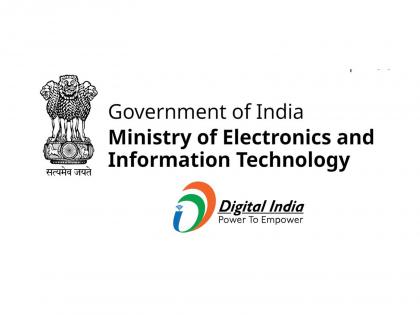Centre notifies amended IT rules to enhance transparency, accountability in content removal by intermediaries
By ANI | Updated: October 22, 2025 23:35 IST2025-10-22T23:34:45+5:302025-10-22T23:35:03+5:30
New Delhi [India], October 22 : The Ministry of Electronics and Information Technology (MeitY) has notified amendments to the ...

Centre notifies amended IT rules to enhance transparency, accountability in content removal by intermediaries
New Delhi [India], October 22 : The Ministry of Electronics and Information Technology (MeitY) has notified amendments to the Information Technology (Intermediary Guidelines and Digital Media Ethics Code) Rules, 2021, (IT Rules) to streamline the framework for removal of unlawful online content by intermediaries, and bring transparency.
These amendments strengthen the framework of due diligence obligations of intermediaries under the Information Technology Act, 2000 (IT Act).
Specifically, the amendments to Rule 3(1)(d) introduce additional safeguards to ensure that removal of unlawful content by intermediaries is carried out in a transparent, proportionate and accountable manner.
The amended rules will come into effect from November 1, 2025.
The IT Rules, 2021 were originally notified on 25th February, 2021 and subsequently amended on October 28, 2022 and April 6, 2023. They prescribe due diligence obligations on intermediaries, including social media intermediaries, to ensure online safety, security and accountability.
Under Rule 3(1)(d), intermediaries are required to remove unlawful information upon receiving actual knowledge either through a court order or notification from the Appropriate Government.
The review undertaken by MeitY highlighted the need for additional safeguards to ensure senior-level accountability, precise specification of unlawful content, and periodic review of government directions at a high level.
Any intimation to intermediaries for removal of unlawful information can now only be issued by a senior officer not below the rank of Joint Secretary, or equivalent, or, where such rank is not appointed, a Director or an officer equivalent in rankand, where so authorised, acting through a single corresponding officer in its authorised agency, where such agency is so appointed.
In case of police authorities, only an officer not below the rank of Deputy Inspector General of Police (DIG), specially authorised, can issue such intimation.
The intimation must clearly specify the legal basis and statutory provision, the nature of the unlawful act, and the specific URL/identifier or other electronic location of the information, data or communication link ("content") to be removed.
This replaces the earlier broad reference to 'notifications' with 'reasoned intimation' to align the Rules with the requirement of 'actual knowledge' as mandated under section 79(3)(b) of the IT Act, bringing clarity and precision.
All intimations issued under Rule 3(1)(d) will be subject to a monthly review by an officer not below the rank of Secretary of the Appropriate Government.
The amendments strike a balance between the constitutional rights of citizens and the legitimate regulatory powers of the State, ensuring that enforcement actions are transparent and do not lead to arbitrary restrictions.
Disclaimer: This post has been auto-published from an agency feed without any modifications to the text and has not been reviewed by an editor
Open in app